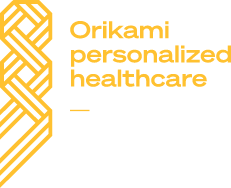Smartphone monitoring of disease activity in multiple sclerosis.
The results of the AppsMS study suggest that remote monitoring of multiple sclerosis disease activity by passively acquired keystroke dynamics and actively obtained self-administered measurements through the smartphone is feasible and reliable. Analyses of keystroke dynamics were shown to have validity in measuring arm function, cognitive processing speed, and overall disability in MS. Keystroke dynamics were also sensitive to clinically relevant changes in disease activity, fatigue and clinical disability measures in MS. Periods of fluctuations in keystroke dynamics may be identified as early warning signals for clinically relevant changes in MS outcomes. Self-administered smartphone measurements for cognition and walking tests are reliable. Cognition and walking tests were shown to have validity in measuring information processing speed and ambulatory function, respectively. Further analyses in currently ongoing.
In MS a vast number of disease-modifying therapies (DMT) are available and new therapies including those targeting disease progression are emerging. This wide array of expanding treatment options will increasingly lead to more personalized disease management. MS patients would strongly benefit from timely recognition of breakthrough of active disease and disability onset. However, disease progression and newly occurring symptoms are often subtle in MS. The advent of digital biomarkers allows for more continuous, remote and fine-grained measurements of MS biometrics, allowing to detect disease breakthrough early, resulting in timely switches of DMT and further avoiding disability progression.
Obviously, acquisition of data in the everyday environment will avoid hospital visits, with clear impact on healthcare costs and advantages during the ongoing pandemic. Results of this study may have enormous societal and economic impact, given the young age of these patients. Today, tackling MS disease activity and progression early is the most urgent unmet need in the management of MS.


